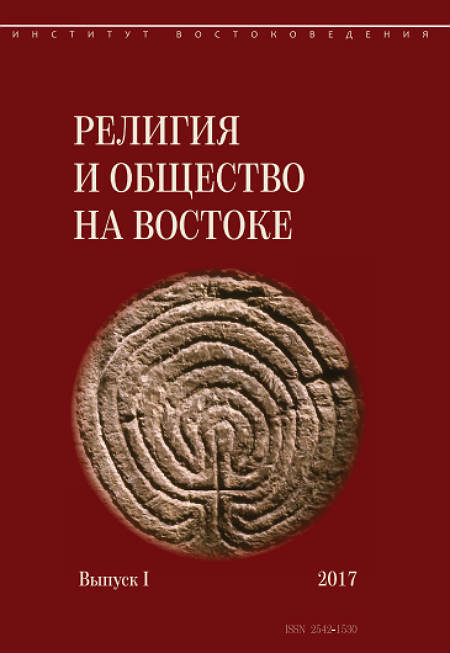Religion and Society in the East
The periodical of the Institute of Oriental Studies, Russian Academy of Sciences. ISSN 2542-1530
Issues
Interfaith relations in the light of deprivation theory versions
Religiia i obshchestvo na Vostoke, Issue III (2019), p. 85-136.
Interfaith relations are considered with an emphasis on social patterns, apart from reference to religious issues. The possibilities of a theoretical approach are revealed, since the 50s of the 20th century developed around the central concept of “relative deprivation”. This universal concept in the general sense means a subjective state of deprivation or deprivation, arising exclusively in comparison, it covers different sizes of social groups, up to large communities (communities). The theory of this general trend is successfully applied, including in social psychology. In our case, the interest in deprivation theory in its various variants is connected with its ap¬plicability to the study of relations between confessional communities of the Middle East. This foreground topic needs in-depth elaboration due to close links with religious issues of political and socio-economic phenom-ena, armed clashes and plans for a peaceful settlement. Sociological theory, which has a proven scientific toolkit, can bring the analysis of these phenomena to the right direction, suggesting the logic of research devoid of the emotional underpinnings and hasty religious connotations. Allegedly, the conflict potential and the religious factor inherent in interreligious relations are often assumed to be central both in relation to the current acute conflicts and unstable societies in the Middle East, and in the history of these countries. Careful attention to social problems and stresses, including in the conditions of a peaceful life, variegated societies in confessional and ethnic relations can significantly correct one-sided assessments and prevent many fatal military-political steps. Variants of deprivation theory allow us to look deep into the problems of everyday life of the population of a multi-component society and come closer to answering questions related to protests and intercommunal clashes under religious slogans. Sociology enriches the possibilities of scientific analysis of these issues, and, perhaps, it will be within the power of a scientist somewhere at the junction of history, sociology and religious philosophy to really uncover the mechanisms of the entire spectrum of interfaith relations.
Keywords: interfaith relations, relative deprivation, sociological theo¬ries, social psychology, the Middle East
Volume: 85-136

